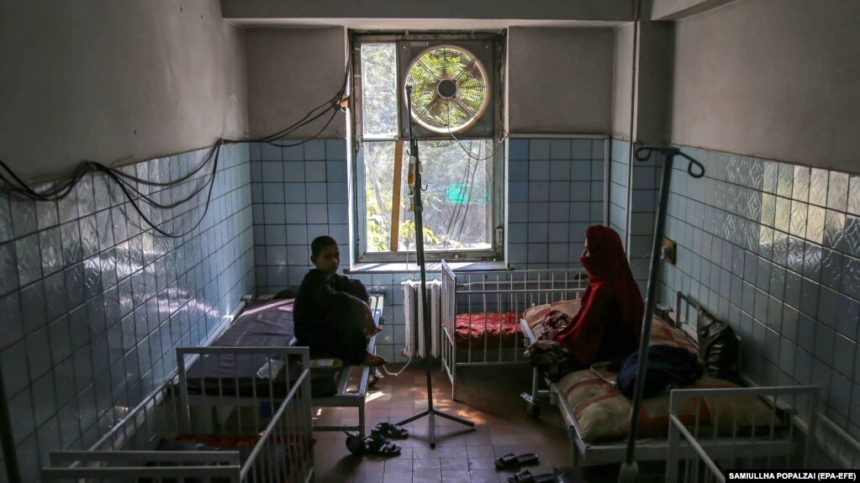RASC News Agency: The World Health Organization (WHO), in coordination with its humanitarian partner, the Global Health Cluster, has confirmed that at least 422 medical facilities across Afghanistan have ceased operations following the abrupt suspension of U.S. humanitarian assistance. This collapse, compounded by the Taliban’s inability to support even the most basic public services, has now placed the lives of millions of vulnerable Afghanistani citizens at acute risk. According to the WHO’s latest report, the closures span 30 provinces, affecting an estimated 3.08 million people, many of whom were entirely dependent on these centers for access to primary and emergency healthcare. The withdrawal of international funding has resulted in the near-total collapse of rural and semi-urban medical infrastructure leaving pregnant women, lactating mothers, infants, children, and chronically ill patients with no path to treatment.
“This humanitarian disaster is not just a consequence of the suspension of aid,” said a former official from an international health NGO in Herat. “It’s also a direct reflection of the Taliban’s administrative paralysis. They are incapable of delivering governance, let alone maintaining a public health system.”
The closures have been most severe in:
Eastern provinces – 80 facilities closed
Southeastern regions – 70 closed
Central Highlands (including Daikundi and Bamyan) – 67 closed
Northeastern areas – 62 closed
Northern regions – 49 closed
Western provinces – 47 closed
Southern Afghanistan – 36 closed
Capital region (Kabul, Logar, Maidan Wardak) – 11 closed
The collapse follows the January executive order by former U.S. President Donald Trump, which reoriented foreign assistance away from countries deemed “non-aligned with U.S. national interests.” Afghanistan, under Taliban rule, was among the first to see immediate budget freezes. While the policy drew criticism, health experts emphasize that the primary responsibility still lies with the Taliban, who have made no credible efforts to build or sustain health governance since taking power. “The Taliban have consistently prioritized ideological enforcement over public welfare,” said a health worker from Balkh province. “They ban music, patrol women’s attire, and regulate public morality with absolute zeal, but they cannot even keep a maternal ward open.”
In early June, the United Nations Population Fund (UNFPA) also sounded the alarm, revealing that due to shrinking resources, more than 6.3 million people, mostly women and girls, would be excluded from basic reproductive and maternal health services. The UN Office for the Coordination of Humanitarian Affairs (OCHA) further warned that, should this trajectory persist, an additional 1,900 healthcare facilities could face closure by the end of 2025 triggering what could become the largest preventable health crisis in the region’s modern history. The Taliban, despite controlling state institutions, have made no transparent budgetary commitments to health services, nor have they taken steps to reassure NGOs or civil society actors about the future of humanitarian programs under their rule. Their indifference to social infrastructure while continuing to enforce repressive religious edicts has created a governance vacuum that international agencies can no longer fill.
Human rights observers and health professionals are calling for alternative funding pipelines that can bypass Taliban intermediaries and directly support non-governmental health providers. However, in the absence of a legitimate governing partner in Kabul, sustaining these mechanisms is increasingly difficult. “We are witnessing the collapse of a nation’s healthcare system in slow motion,” said a Kabul-based physician who requested anonymity for security reasons. “And the Taliban’s silence in the face of this collapse is as deadly as the crisis itself.”
As Afghanistan plunges deeper into health and humanitarian disintegration, it is the country’s most marginalized especially women, children, and the poorwho suffer the greatest consequences. Their voices, already silenced under Taliban rule, now risk being extinguished altogether, not by war, but by systemic neglect and global abandonment.






